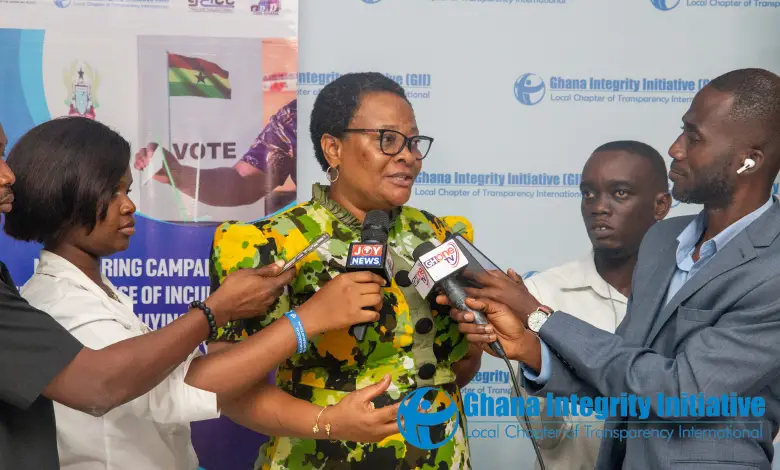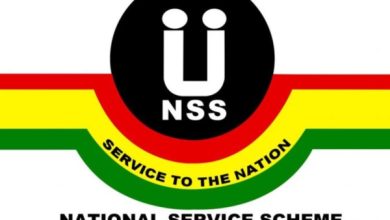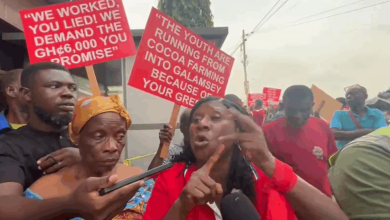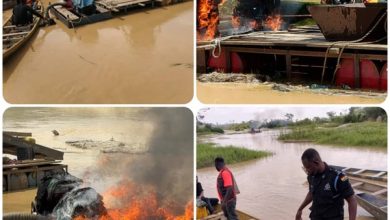
The Ghana Integrity Initiative (GII) and its partners have rolled out an initiative to monitor campaign spending, abuse of incumbency, and vote-buying ahead of the 2024 presidential and parliamentary elections.

The consortium is monitoring over 100 constituencies to capture instances of abuse of state resources, vote buying, and financial campaign violations.
This initiative aims to estimate the cost of presidential campaigns and assess the extent of financial irregularities, including the misuse of state resources.
The goal is to propose political campaign reforms, enhance electoral integrity, and organize public forums to raise awareness about the effects of monetisation on the electoral process.
The initiative which is being spearheaded by GII in partnership with Ghana Anit-Corruption Coalition (GACC), Ghana Centre for Democratic Development (CDD-Ghana), is a step towards advocacy for a comprehensive campaign finance reform.
Speaking at the launch on Wednesday (11 September), executive director of GII, Mary Awelana Addah said although Ghana is recognised as a beacon of democracy within Africa, the monetisation of political processes and election financing has threatened its democratic integrity.
“The influence of money on elections and the advantage of incumbency have undermined public trust in democratic institutions,” she said.
Addah said groups like women, youth, and the vulnerable have been excluded from entering politics due to the huge financial requirements involved.
A study carried out by the Center for Democratic Development (CDD-Ghana) in 2021 reveals that a presidential candidate in Ghana needs at least US$100 million to win an election.

The findings of the study also show that parliamentary candidates need at least GHC4 million to win a seat highlighting how Ghana’s political space has been monetised.
She stated that, Ghana’s campaign financing and political party funding laws have significant gaps, with no direct public funding for political parties and unclear regulations on individual and corporate donations.
“The lack of clarity in the laws allows for abuse, with no limits on donations and clear guidelines on the filling of returns and the use of donations” she added
Frederick Adu Gyamfi, director of programmes – CDD Ghana, stated that, political campaigns which are resource intensive and funded through private donations, party membership fees, and undisclosed sources, often lead to financial power elections.
“The political parties Act 574 requires political parties to disclose their accounts after elections, but these disclosures are rare, and there is minimal enforcement from Electoral Commission.
“The lack of transparency amd absence of a cap on campaign expenditure create an environment where elections are influenced by financial power rather than the will of the people,” he noted.
He added that, the parliamentarians who spend over US$70,000 dollars on campaigns often prioritize recouping their investments over public interest.

“The misuse of state resources distorts electoral competition and undermines the fairness of elections. Constitutional safeguards, such as equal access to state media (Article 55) and prohibition of conflicts of interest (Article 284), exist but are often bypassed, giving undue advantage to the ruling party. This misuse erodes public trust in the democratic process,” he said.




